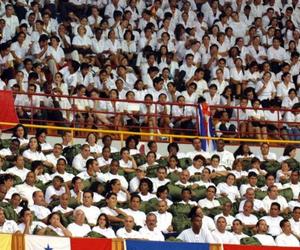SA-Cuba medical programme criticised
- Submitted by: lena campos
- Health and Medicine
- 07 / 13 / 2013

Pretoria - Medical experts have criticised the South African-Cuban doctor programme, saying the South African doctors were not adequately equipped when they came home.
Last week, 62 medical students returned from Cuba to begin the last leg of their training to become qualified doctors.
According to the Department of Health, there are 1 003 South African medical students training in Cuba.
Health Minister Aaron Motsoaledi aims to increase the number of doctors trained in South Africa from 1 200 to 3 600 a year, with local medical schools already having upped their intake by 160 last year.
But the lack of facilities and places available has led to students being sent to train in Cuba.
“The burden of disease in Cuba is very different,” explained Elma de Vries, a doctor based in Mitchells Plain and a former chairman of The Rural Doctors Association of Southern Africa.
According to De Vries, when the freshly-trained doctors return to South Africa they do so without having been trained in how to deal with TB, HIV or the complications of diabetes.
They also hadn’t been trained to deal with women in labour, she said.
The students spend their first year in Cuba learning Spanish.
They spend another five years in medical school in Cuba before returning here to finish their training, which takes between 12 and 18 months.
“It’s a long, tedious and expensive process, and it’s very hard for them to meet expectations,” she said.
Errol Holland, chairman of the South African Committee of Medical Deans, which represents all eight medical schools in the country, agreed with De Vries.
“They have a preventative healthcare system and we are not there yet,” he said. Students going to Cuba are trained in the needs of the Cuban health-care system.”
Holland said his committee had raised “issues” with Motsoaledi about the exchange programme.
De Vries and Holland said there were simply not enough doctors in South Africa and the universities had struggled to increase their output.
Holland said he understood that more doctors were required in order to implement Motsoaledi’s National Health Insurance plan.
“We agree that there is a high degree of inequality (in health care).
“(About) 1 000 doctors are required and this is what we are working towards,” he said.
Holland said there needed to be more facilities for trainees and programmes to help ensure returning students were qualified to practise here.
Joe Maila, spokesman for the Department of Health, said the programme was an agreement between the two governments.
“We needed to address the shortage of doctors and Cuba has more than 20 medical schools.”
He said the programme would give South Africa more doctors.
The more doctors there were the better, he added.
Source: www.iol.co.za
Comments